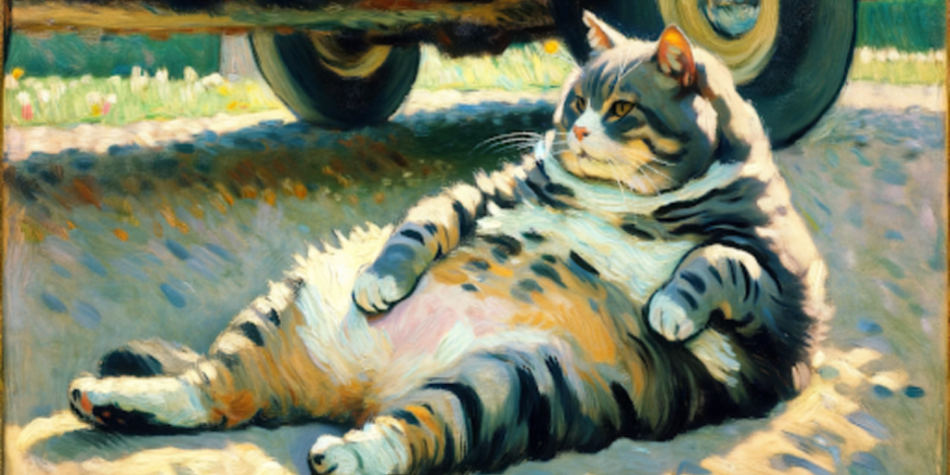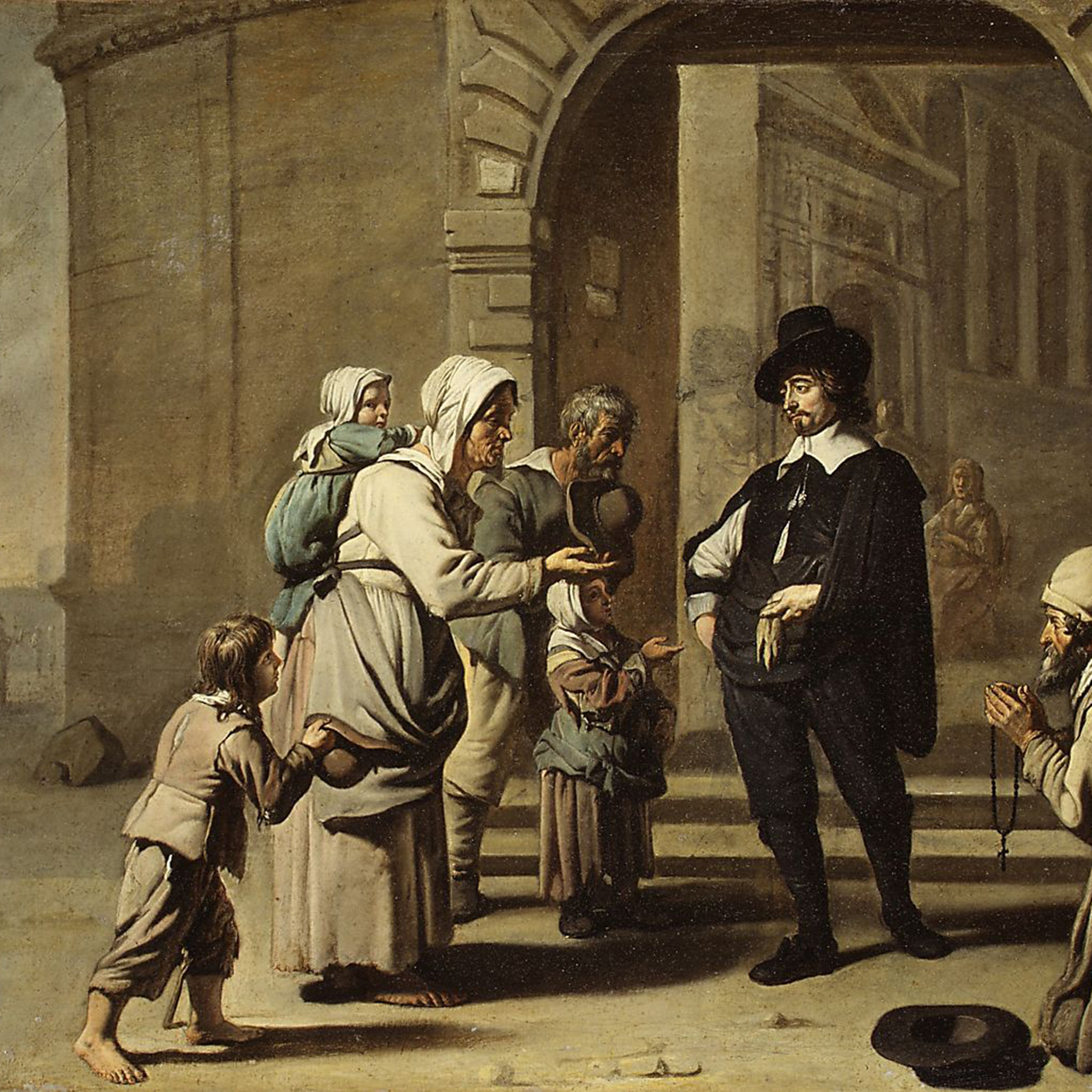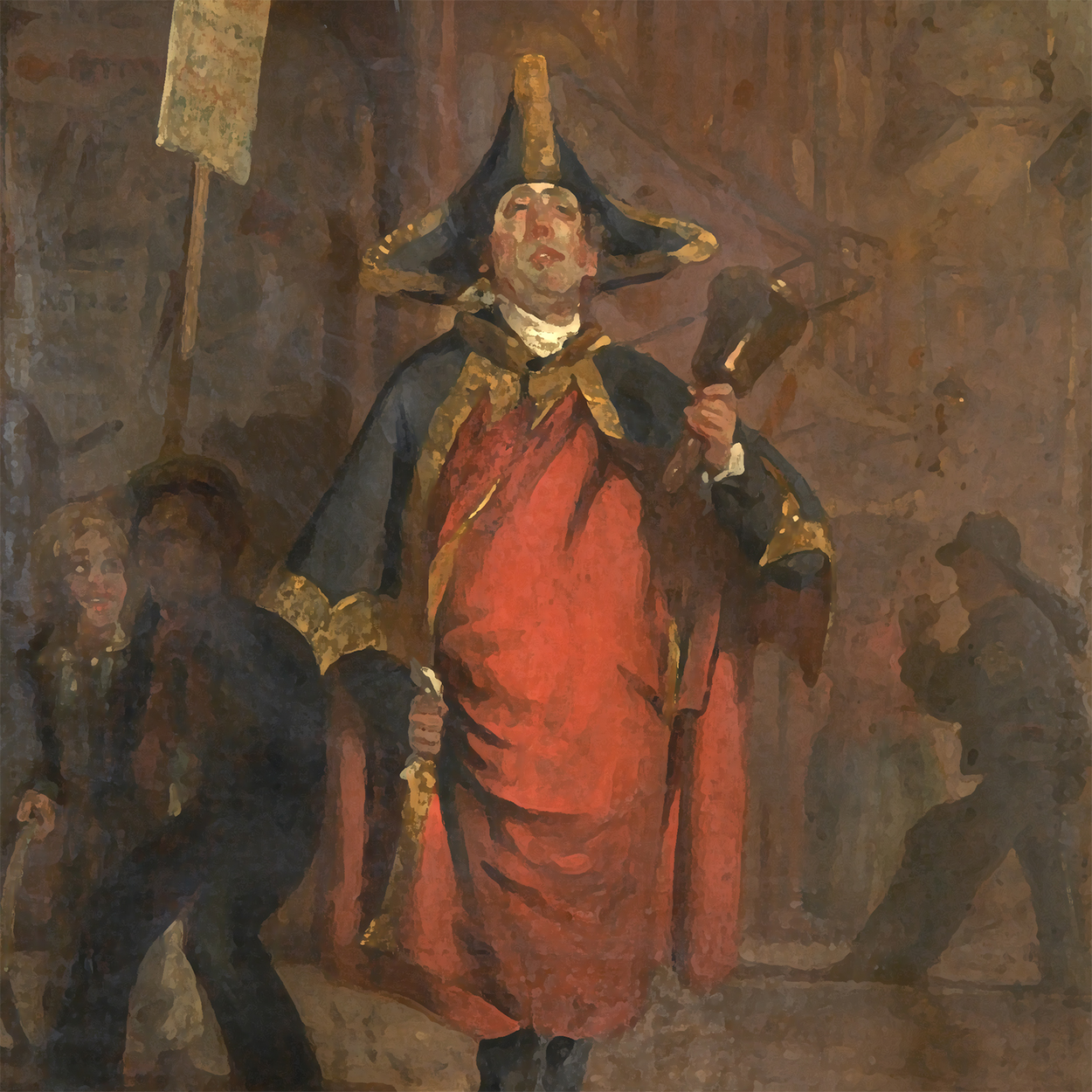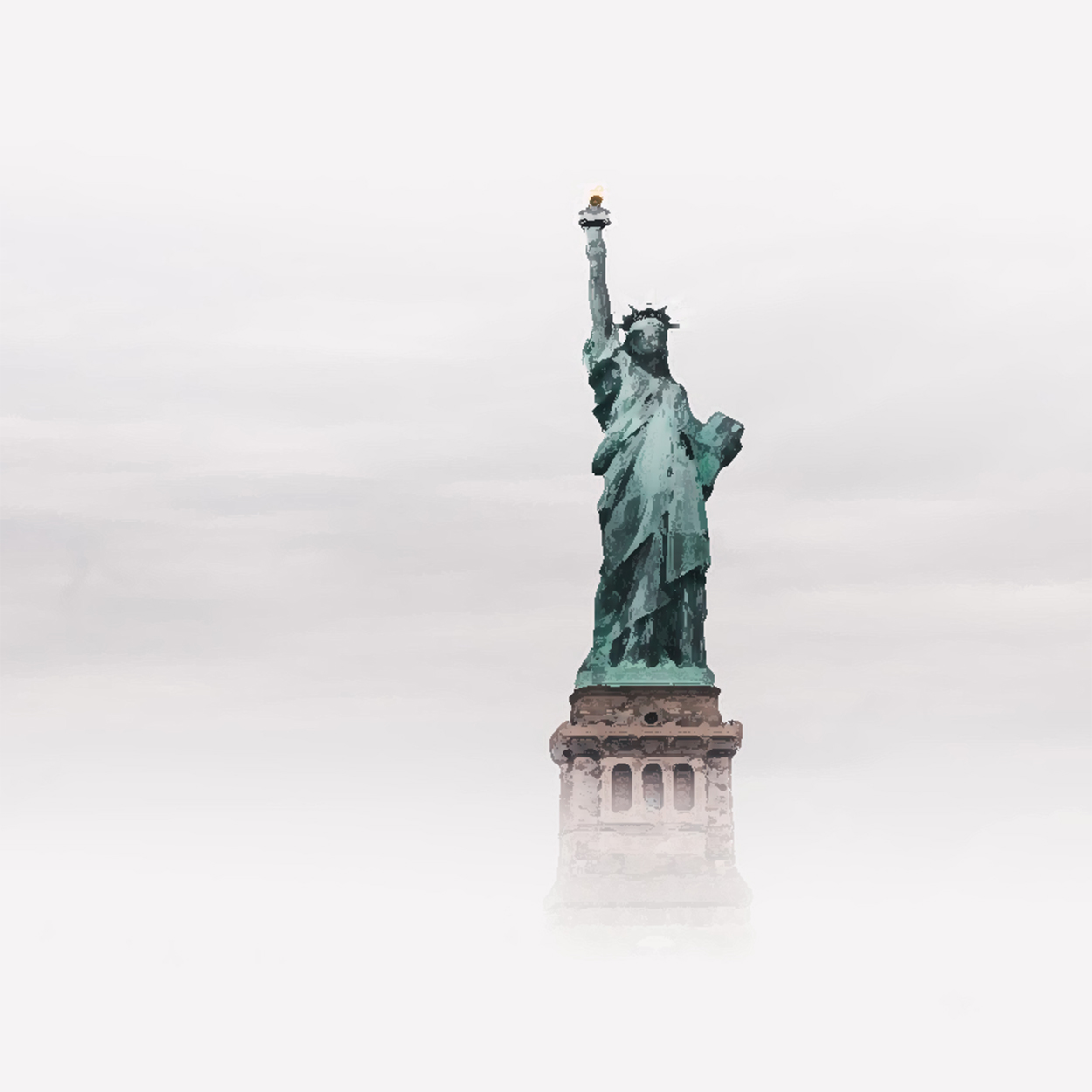Can a cat be mediocre? If they can, I know one. My friend has a fat gray cat. He is usually lying under their car or wandering around the street. He has been declawed, so he can’t hunt. My daughter tries to pet him, and he may allow one or two strokes and then waddles away, back into the house to be fed. He is living out his days in comfort and security. He gets by.
We may not want to admit it, but many of us are like this fat gray cat. We don’t do harm; we don’t do much good—we get by.
I recently listened to an interesting YouTube video where the presenter asked, “Do we live in a pathologically mediocre society where people are thin and flimsy, aggregates of human qualities rather than actual human beings?” He went on to make his case that most of us are mediocre. He quoted Kierkegaard, who said, “Let others complain that the age is wicked; my complaint is that it is wretched; for it lacks passion.”
I think he is right. Occasionally I will meet someone who is truly Alive—it is rare enough to make an impression. But otherwise, we seem mostly to be getting by like this fat gray cat. We move about, we seem occupied, but underlying boredom and apathy haunt our busyness.

Why are we mediocre?
G.K. Chesterton would argue that the cause of our wretchedness is a lack of wonder: “The world will never starve for want of wonders; but only for want of wonder.” Many of us are like this fat gray cat.
At the beginning of the story, he holds a pistol to the head of Professor Eames, a man famous for his lectures on pessimism. His ideology sees pessimism as the one true philosophy—life is not worth living. However, the shock of being nearly murdered by Innocent Smith forces Professor Eames to realize that life is, in fact, precious. He wakes up to Life and discards his cynicism.
Innocent Smith finds that to stay “Alive,” he must continually re-enchant his life with wonder. He wanders the world so he may return to his home with a rekindled appreciation. He has affairs with numerous women who all turn out to be his own wife. He breaks into his own home like a robber so he can view his possessions with envy. His behavior is disconcerting to most people who encounter him. However, others, in seeing his vitality and joy, awaken to the mediocrity and ingratitude of their lives.
When accused of insanity because of his continual breach of norms, Innocent Smith corrects our notion of madness, “Madness does not come by breaking out, but by giving in; by settling down in some dirty, little, self-repeating circle of ideas; by being tamed.”
Professor Eames encourages him to keep his gun and use it to awaken others from their self-deceit and mediocrity. Smith declares, “I am going to hold a pistol to the head of the Modern Man. But I shall not use it to kill him—only to bring him to life.”
Be a Holy Fool
Manalive follows the theme of many works of great literature, which depict a character, a holy fool or unlikely hero, who seems slow, idealistic, silly, or backward to others—yet who we discover is the one character who truly sees the world as it should be seen. Some books with this holy fool include—Alyosha in The Brothers Karamazov, Diamond in At the Back of the North Wind, Don Quixote, Pollyanna, and Despereaux in The Tale of Despereaux. In childhood, we can see most clearly.
We are commanded to become like little children, and children are “holy fools.” They stare in wonder at the caterpillar crossing the road. They are enchanted by a snowstorm. They beg to push the button on the elevator. They will trade all their savings for one gummy bear.
“What was wonderful about childhood is that anything in it was a wonder. It was not merely a world full of miracles; it was a miraculous world.” ~G.K. Chesterton
My youngest daughter, 6, is one of the most dramatic people I know. She bounces between extreme excitement and boiling anger. I am the “best mother in the entire world,” or I have “never done anything nice for her, EVER!” I have had many discussions with her about showing proper respect and controlling her emotions—but at the same time, I am glad she is passionate. I never want my teaching on manners and self-control to stamp out her wild and wondrous nature.
Our modern pharmaceutical mindset would cause many to want to “cure” the bipolar tendencies of such a changing nature. If Mozart, Van Gogh, Tesla, Poe, and Newton were born today, they would likely be medicated out of their eccentricities, as well as their geniuses. Truth, goodness, and beauty are not tame and controllable; they are wild and free. Often I find myself in a room of adults and discover that everyone seems bored—we are “all politeness” and no excitement—we have been tamed.
Robert Boyle, the Father of modern Chemistry, explains that in childhood, we can see most clearly, that we are our most true selves. We are not yet bored by the miracle of everyday living. He writes:
We must try to recover the candour and wonder of the child—the unspoilt realism and objectivity of innocence. Or if we cannot do that, we must try at least to shake off the cloud of mere custom and see the thing as new, if only by seeing it as unnatural. Things that may well be familiar so long as familiarity breeds affection had much better become unfamiliar when familiarity breeds contempt. We must invoke the most wild and soaring sort of imagination—the imagination that can see what is there.
Awake
In the Bible, many scriptures begin with the plea to Awake! God seems to be pleading with us like our 1st-period high school teacher would—care, act, see, listen!
Thessalonians 4:6 says, “So then let us not sleep, as others do, but let us keep awake.” “Living” men and women change the way they view the world.
Sleep is a coping mechanism. We have all awoken to a gloomy, rainy day, pulled the sheets over our heads, and gone back to sleep. Childhood trauma, unresolved grief, and chronic adversity can cause us to determine that to live, and to feel, will only lead to more suffering. When we live in fear of pain and loss, we may go out into this gloomy life, but we won’t risk being hurt as we once were. So we push down our vitality, our passion, our wonder—we get by.
Years ago, I became acquainted with a young mother who, because of trauma from her childhood, had decided that caring about things had led to too much suffering. I could never get her engaged in more than shallow conversations; she would never show joy or sorrow. Her children were similar to their mother, as is often the case. She had wrapped her broken heart in a blanket of apathy. She did not feel the pain of disappointment and sorrow, but her range of emotion had narrowed so that love and joy also eluded her.
Thankfully she began speaking to a trusted friend who helped her see the importance of letting herself feel what needs to be felt and finding herself protected in the arms of her Heavenly Father. She summoned the one virtue that can most aid us in this awakening—in pushing the covers off and waking up—Courage. She changed. She let herself become vulnerable. Her children begin to feel the vitality of their mother’s unmuted love. Pain came, and then it went—for she now knew her God.
To love at all is to be vulnerable. Love anything, and your heart will be wrung and possibly broken. If you want to make sure of keeping it intact, you must give it to no one … But in that casket, safe, dark, motionless, airless, it will change. It will not be broken; it will become unbreakable, impenetrable, irredeemable. To love is to be vulnerable.” ~C.S. Lewis, The Four Loves
Rejoice
Our brains are wired to see the negative before the positive. This is a protective mechanism—our brains want us to notice the snake and not be distracted by the beautiful roses. That’s good because we want to avoid snakes, but we need to rise above it. We need to allow our souls, who still recognize the safe arms of God, to override our brain’s negative tilt. We need to willfully smell the roses. We need to overemphasize the good to compensate. Healthy cultures and people dance, they have feasts, they have days of celebration, they worship—and they are enlivened and ready to face the rain and gloom.
Life is for rejoicing, for action, for victory—with a good mix of suffering thrown in to keep us grateful for the joyful interludes. We live in a universe full of wonders.
Tell me not, in mournful numbers,
Life is but an empty dream!—
For the soul is dead that slumbers,
And things are not what they seem.
Life is real! Life is earnest!
And the grave is not its goal;
Dust thou art, to dust returnest,
Was not spoken of the soul.
~Excerpt from Psalm of Life, Henry Wadsworth Longfellow
To avoid becoming a mediocre, dreary, predictable, “tame” person, we must shake off the dust of our own numbing ingratitude and truly appreciate the everyday wonders before us. The love of a spouse is a miracle. The song of a bird is a miracle. The taste of a mango is a miracle.
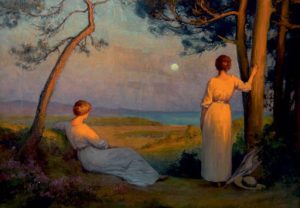
“The whole order of things is as outrageous as any miracle which could presume to violate it.” ~G.K. Chesterton
If we succeed in truly Living, we will likely seem strange to those around us, as the holy fools in literature are strange to all but the most humble. “Living” men and women change the way they view the world. They reject the drudgery of materialism. They believe in things that others have grown cynical about, such as love, sacrifice, and faith. They fight and forgive. They glory and praise.
Living Below Our Birthright
We are meant to be Awake and Alive, even if everyone else is dull and asleep. Kierkegaard continues his commentary on the passionless ordinary man to point out that we are living far below our potential:
Men’s thoughts are thin and flimsy like lace … The thoughts of their hearts are too paltry to be sinful. For a worm, it might be regarded as a sin to harbor such thoughts, but not for a being made in the image of God.
Christ would compare our propensity to mediocrity to the temperature of lukewarm water. He Himself suggests it is better to run hot, for at least then you have actively chosen your fate. The passionately-wrong are, if they are open, more easily turned in the opposite direction. A speeding vehicle can easily do a donut and face the other way. A slow and steady truck—weighed down by habit and custom—is much more difficult to shift. Saul became Paul in an instant as he rushed to imprison Christians in Damascus. The more measured and compromising Sadducees were witnesses to miracles, yet their weight of tradition, pride, and prejudice made them unchangeable.
We are beings of eternal destiny. What a tragedy it is to be a fat gray cat in human form.
C.S. Lewis gave us a glimpse of what we may be in his famous quote from The Weight of Glory:
It is a serious thing to live in a society of possible gods and goddesses, to remember that the dullest, most uninteresting person you can talk to may one day be a creature which, if you saw it now, you would be strongly tempted to worship, or else a horror and a corruption such as you now meet, if at all, only in a nightmare.
How do we develop and become this goddess? How can we reignite this wonder? That fat gray cat is a product of his environment and has been trained to be mediocre, and mediocre he will stay—he can’t grow back his claws, he can’t regain his killer instinct. But we retain a wild and free will, buried and dusty though it may be. We can shake off the dust. We can discover again the wildness of life and allow it to flow through our lives. As we begin to recognize our need for wonder and gratitude and the need to recognize miracles and be a miracle in the lives of others—we can learn to LIVE AGAIN.

